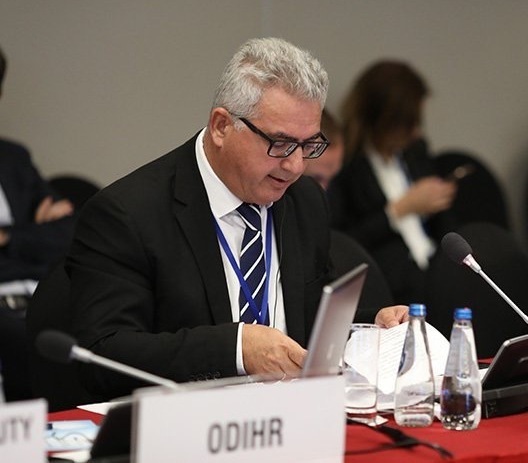"People are experiencing the dire socio-economic consequences of the coronavirus pandemic, but at the same time this unprecedented crisis is creating opportunities for improvement in many areas," said the chairman of the Parliamentary Committee on Democracy, Human Rights and Humanitarian Affairs. Security and Cooperation in Europe (OSCE), MP Kyriakos Hatzigiannis, who participated yesterday in a roundtable discussion organized by the OSCE Office for Democratic Institutions and Human Rights, on "Parliaments and Information Technology and Communication Technologies" ».
In a statement, the Parliament states that Mr. Hatzigiannis pointed out that the world is experiencing the terrible socio-economic consequences of the coronavirus pandemic, but at the same time this unprecedented crisis creates opportunities for improvement in many areas, such as the acceleration of digitalization. and enhanced use of ICT.
Referring to the steps taken by the House of Representatives in this area, Mr. Hatzigiannis noted the digitization of the House archive, which, as he said, has become easily and directly accessible to its Members, while in this way, the documents can be distributed, modified, revised and redistributed accurately and efficiently.
He also referred to the electronic system of drafting and managing documents maintained by the Parliament, emphasizing that it is a very important tool, especially in the current conditions, but also in general, for the coordination and support of the work of the parliamentary committees.
He also pointed out that the technology is necessary to support the process of recording the votes or other actions of the deputies, as well as for the online transmission of the plenary sessions.
He also noted that bills and draft laws are published on the website of the Parliament, for the seamless and easy access of the media, organized groups and citizens.
"Therefore," he stressed, "the use of ICT can ensure a more efficient, accessible and transparent parliamentary process."
He emphasized that the promotion of transparency could indeed encourage and facilitate the active participation of citizens, but added that despite these opportunities and the fact that much of society has acquired computer skills, more needs to be done. .
He stressed the importance of actively encouraging and promoting citizen participation, while warning that a section of society would have to fill significant gaps in order to have equal access to information.
Concluding, Mr. Hatzigiannis stressed that a strong ICT strategy in national parliaments must be an integral part of efforts to meet their democratic commitments.
Source: KYPE
